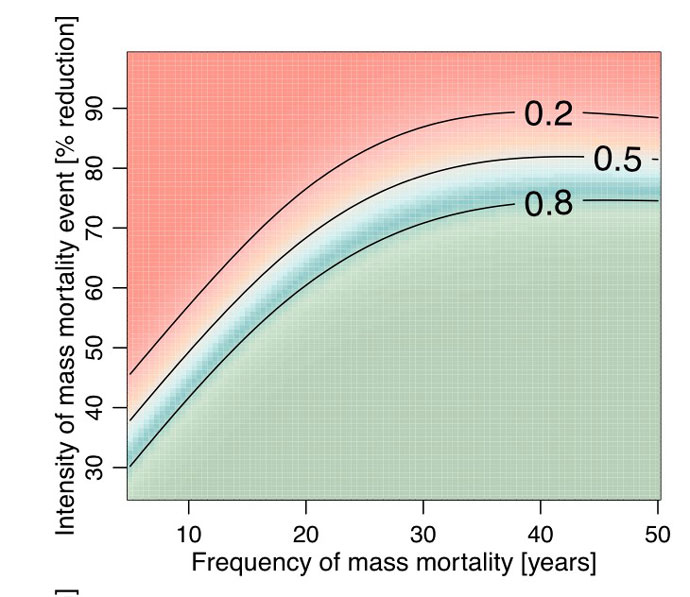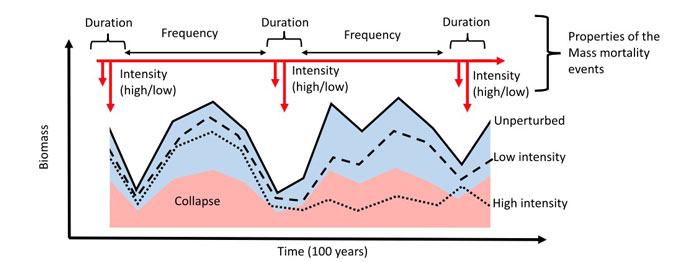Recently, it has become clear that extreme events associated with climate warming are becoming more common. Marine heatwaves are an example that has received prominent attention. How fish populations respond to such events is unclear, but one concern is elevated mortality in the early life stages, for example, egg and larval stages. Elevated mortality, often denoted mass mortality events, in early life can also be associated with other stressors, such as marine oil spills and toxic algal blooms. Predicting the frequency and intensity of future mass mortality events in fish is challenging. As an alternative approach, we quantified the tolerance level of fish to increase the frequency and intensity of mortality events (Langangen & Durant, 2024). It has previously been shown that fish are generally quite resistant to single-year mass mortality in early life (see Langangen et al. 2023 and post). In the recent study, we took a scenario approach (Fig.1) and we recorded the probability that the population biomass would be significantly reduced (50% compared to baseline).

With this scenario approach, we were able to quantify the population level tolerance of 39 different fish species to increased frequency and intensity of mass mortality events. One example of this quantification is shown in Figure 2. We did not find any clear taxonomic signal (different orders did not show clear differences) but we found a clear relationship between the strength of density dependence in early life, longevity, and between-year variation in survival (recruitment variation). Density dependence tends to dampen the mortality events, as the survivors will typically experience less competition. Longevity also tends to dampen effects as it indicates that there are more individuals in cohorts that are not affected by the events. Finally, if there are high variations in early life survival, some very strong year classes may be affected and lead to a high impact of a mortality event. Our predictions are urgently needed for a better understanding of climate effects on fish populations and potentially for mitigation of climate change.
References:
Langangen Ø., Ohlberger J., Stige L.C., Patin R., Buttay L., Stenseth N.C., Ono K. & Durant J.M. (2023). Effects of early life mass mortality events on fish populations. Fish and Fisheries 24(1): 176–186. doi:10.1111/faf.12718.
Langangen Ø. & Durant J.M. (2024). Persistence of fish populations to longer, more intense, and more frequent mass mortality events. Global Change Biology, 30(3), e17251. https://doi.org/10.1111/gcb.17251

Log in to comment
Not UiO or Feide account?
Create a WebID account to comment